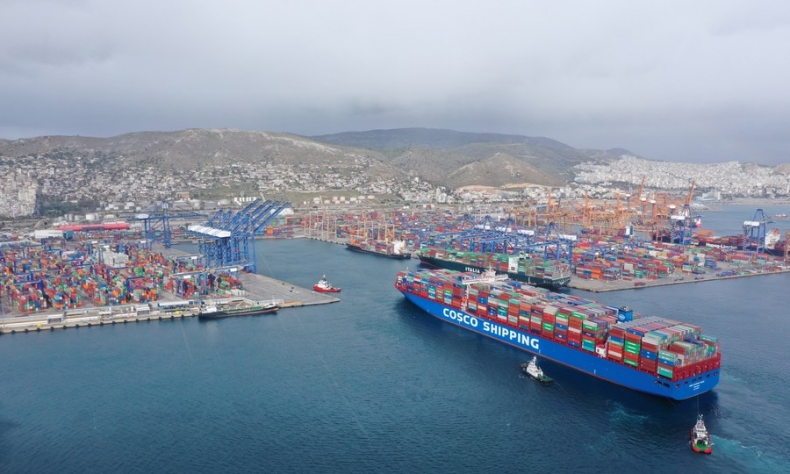A Special Year for China and Greece

China and Greece continue to intensify their dialog and look to new synergies in the years to come. Their cultural proximity, as they both represent ancient civilizations, functions as an advantage that drives multifaceted conversations.
This year, China and Greece celebrate the 50th anniversary of the establishment of their diplomatic relations. Since 1972, over the past half a century, the two countries have managed to take steps together and diachronically adjust their cooperation to international circumstances. The historic visit of former Prime Minister Constantinos Karamanlis to Beijing in 1979 laid the foundations of Greece’s approach toward the Asiatic giant. Karamanlis’ philosophy stipulated that although his country belonged to the West, it was simultaneously open to looking toward the East. This remains a basic tenet of Greek foreign policy in the 21st century.
As is the case with several other Western European countries, which established diplomatic relations with China in the 1970s, ties started to gradually blossom around that time – and China’s opening-up and reform process was also a turning point in this direction. In the post-Cold War era, investments, trade, and people-to-people exchanges attracted the lion’s share of Sino-European discussions.
During the ’00s, Sino-Greek relations were characterized by the harmonious collaboration of the two sides on the organization of the 2008 Beijing Olympic Games. Four years prior, in 2004, Athens had hosted the Olympics itself. Greece, where the Games were born in antiquity, was keen on sharing its technical and traditional experience with China, including for the handover of the Flame. A similar pattern was followed a few months ago in preparation for the Beijing 2022 Winter Olympics.

The first decade of the 21st century will also be remembered because it marked the beginning of COSCO Shipping’s investment in the port of Piraeus. The Chinese company entered the port in 2009 and managed – in a period of only a few years – to transform it into one of the biggest in the Mediterranean. With the conclusion of the privatization of the Piraeus Port Authority in 2016, the company’s plan to overhaul the port was cemented. This specific investment, often described by the Chinese administration as the head of the dragon in China’s economic interest in Greece, is one of the main reasons why several international scholars and journalists are currently researching the evolution of Sino-Greek relations.
In the summer of 2018, China and Greece signed an MoU on the joint construction of the Belt and Road Initiative, and one year later, in 2019, the former entered the 16+1 Initiative in hopes of enhancing its trade position in the Balkans and Central and Eastern Europe. In the same year, Greece and China signed a joint statement on strengthening their comprehensive strategic partnership. The Greek government reaffirmed then its commitment to the one-China principle as well as its respect for China’s sovereignty and territorial integrity.
The outbreak of the COVID-19 pandemic in early 2020 seriously impacted Sino-Greek relations as it deprived the countries of valuable physical exchanges. In addition, tourism could no longer be a driving force of the bilateral partnership, while education synergies needed to move to the digital sphere. Nevertheless, the bilateral trade volume has increased. According to Greek statistics, this volume rose from €4.9 billion in 2019 to circa €5.7 billion in 2021. Greek exports of marble to China, in particular, showed a 27.1% rise in 2021 (€174.4 million) in comparison to 2020 (€137.1 million). A significant yet lower increase (6.6%) was seen in the export of Greek medicines.
China and Greece continue to intensify their dialog and look to new synergies in the years to come. Their cultural proximity, as they both represent ancient civilizations, functions as an advantage that drives multifaceted conversations. Although 2022 will certainly be a special year for the two partners, 2023 is expected to be even more promising. The much-anticipated end of the COVID-19 pandemic has the potential to return people-to-people exchanges to pre-2019 standards, and perhaps, even higher.
 Facebook
Facebook
 Twitter
Twitter
 Linkedin
Linkedin
 Google +
Google +










